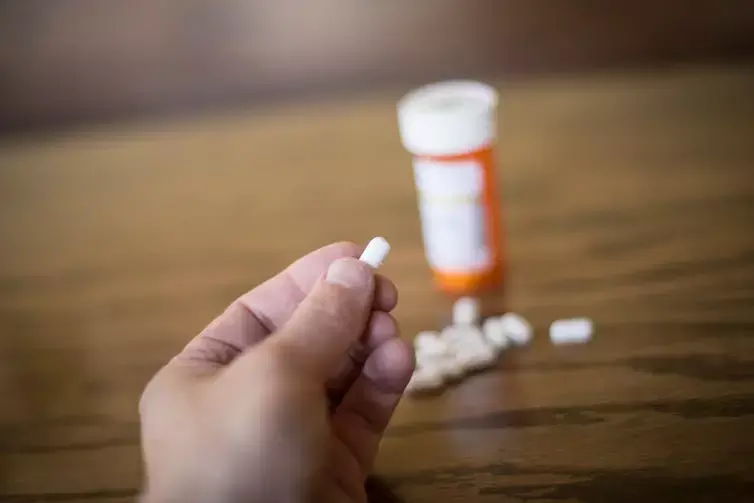- Home
- Medical news & Guidelines
- Anesthesiology
- Cardiology and CTVS
- Critical Care
- Dentistry
- Dermatology
- Diabetes and Endocrinology
- ENT
- Gastroenterology
- Medicine
- Nephrology
- Neurology
- Obstretics-Gynaecology
- Oncology
- Ophthalmology
- Orthopaedics
- Pediatrics-Neonatology
- Psychiatry
- Pulmonology
- Radiology
- Surgery
- Urology
- Laboratory Medicine
- Diet
- Nursing
- Paramedical
- Physiotherapy
- Health news
- Fact Check
- Bone Health Fact Check
- Brain Health Fact Check
- Cancer Related Fact Check
- Child Care Fact Check
- Dental and oral health fact check
- Diabetes and metabolic health fact check
- Diet and Nutrition Fact Check
- Eye and ENT Care Fact Check
- Fitness fact check
- Gut health fact check
- Heart health fact check
- Kidney health fact check
- Medical education fact check
- Men's health fact check
- Respiratory fact check
- Skin and hair care fact check
- Vaccine and Immunization fact check
- Women's health fact check
- AYUSH
- State News
- Andaman and Nicobar Islands
- Andhra Pradesh
- Arunachal Pradesh
- Assam
- Bihar
- Chandigarh
- Chattisgarh
- Dadra and Nagar Haveli
- Daman and Diu
- Delhi
- Goa
- Gujarat
- Haryana
- Himachal Pradesh
- Jammu & Kashmir
- Jharkhand
- Karnataka
- Kerala
- Ladakh
- Lakshadweep
- Madhya Pradesh
- Maharashtra
- Manipur
- Meghalaya
- Mizoram
- Nagaland
- Odisha
- Puducherry
- Punjab
- Rajasthan
- Sikkim
- Tamil Nadu
- Telangana
- Tripura
- Uttar Pradesh
- Uttrakhand
- West Bengal
- Medical Education
- Industry
Oral testosterone effective for men with low testosterone levels, with no liver toxicity

WASHINGTON - An industry-supported study of an oral testosterone replacement therapy (TRT), testosterone undecanoate (TU, brand name Jatenzo) finds it is an effective, long-term treatment for men with low testosterone levels, with no evidence of liver toxicity. The findings are being presented virtually at ENDO 2021, the Endocrine Society's annual meeting.
TST is currently available in multiple modes of administration, including implantable pellets, transdermal gels and intramuscular injections.
"For many men with low testosterone levels, an oral option is preferred to avoid issues associated with other modes of administration, such as injection site pain or transference to partners and children," said lead researcher Ronald S. Swerdloff, M.D., of the Lundquist Research Institute in Torrance, California. "Before TU was approved, the only orally approved TST in the United States was methyl-testosterone, which was known to be associated with significant chemical-driven liver damage."
The U.S. Food and Drug Administration approved TU in March 2019, and the medication was made commercially available in February 2020.
Swerdloff conducted a safety and efficacy analysis following two years of TU oral capsule administration in men with low testosterone levels. There were two parts of the study. The first study included men ages 18 to 75 with low testosterone levels who were followed for 12 months. After the first year, 86 men enrolled in the second study, which lasted for another year.
Over two years, TU kept total testosterone levels in the normal range, with a safety profile relatively consistent with other approved testosterone products. There was no evidence of liver toxicity. There were small but statistically significant increases in prostate specific antigen (PSA), a protein produced by the prostate, and hematocrit (HCT), which measures red blood cell levels. Swerdloff noted these increases are observed with other forms of TST, regardless of modes of administration. The drug had minimal effects on LDL "bad" cholesterol, while lowering HDL "good" cholesterol, as is common with other TRT formulations.
"Our study finds TU is an effective oral therapy for men with low testosterone levels and has a safety profile consistent with other approved testosterone products, without the drawbacks of non-oral modes of administration," Swerdloff said.
Hina Zahid Joined Medical Dialogue in 2017 with a passion to work as a Reporter. She coordinates with various national and international journals and association and covers all the stories related to Medical guidelines, Medical Journals, rare medical surgeries as well as all the updates in the medical field. Email: editorial@medicaldialogues.in. Contact no. 011-43720751
Dr Kamal Kant Kohli-MBBS, DTCD- a chest specialist with more than 30 years of practice and a flair for writing clinical articles, Dr Kamal Kant Kohli joined Medical Dialogues as a Chief Editor of Medical News. Besides writing articles, as an editor, he proofreads and verifies all the medical content published on Medical Dialogues including those coming from journals, studies,medical conferences,guidelines etc. Email: drkohli@medicaldialogues.in. Contact no. 011-43720751


